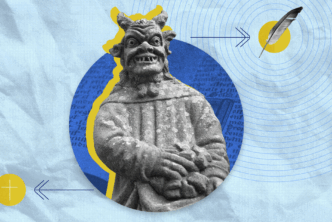Considering Jesus’ last words on the cross anew enriches our appreciation for what we celebrate every Easter.
Jesus on the cross was more than a very good man having a very bad day. At Calvary, “God was in Christ, reconciling the world unto Himself” (2 Cor. 5:19). This reconciliation resonates through all of Jesus’ sacred statements on the cross. Considering Jesus’ last words on the cross anew enriches our appreciation for what we celebrate every Easter.
Reconciliation brings grace
Father, forgive them, for they know not what they do.—Luke 23:34.
Facing death, Jesus prays for those who were killing him. His amazing grace contrasts with our own tendency to vilify those we disdain. From politicians we excoriate to acquaintances we snub, our actions demonstrate cluelessness about the depth of our own depravity. (John 13:8). Even our best works require forgiveness, since everything we do falls short of perfection. Thus grace is never earned—just humbly received and shared.
Reconciliation brings assurance
You will be with me in Paradise.—(Luke 23:43).
Crucified between two thieves, Christ endured mocking and cursing from both his crude companions (Matt. 27:44). Even naked felons exploit their social superiority over the defamed “king of the Jews.”
Suddenly God’s Spirit jolts one of them with the truth about Jesus. “Lord, remember me,” he pleads. Christ’s forgiveness is swift and certain. The justified thief dies in peace.
Somehow, many Christians today are reluctant to embrace that assurance of salvation. And yet we too may “rejoice because our names are written in heaven” (Luke 10:20).
Reconciliation conquered hell
My God, my God, why have you forsaken me?—(Matt. 27:46).
On the cross Jesus opened the gates of heaven to us, even as he suffered hell on earth. He experienced the universal and final death we all deserve (Heb. 2:9). The horror of the cross was not mere physical torment, it was Christ’s temporary loss of fellowship with the Father. He who had known no sin became sin for us (2 Cor. 5:21), and in that moment his fellowship with a holy God was broken, leaving him suffocating in our guilt.
On the cross Jesus opened the gates of heaven to us, even as he suffered hell on earth. He experienced the universal and final death we all deserve (Heb. 2:9). Share on X
Reconciliation creates community
When Jesus saw his mother and the disciple whom he loved standing nearby, he said to his mother, “Woman, behold, your son!” Then he said to the disciple, “Behold, your mother!” And from that hour the disciple took her to his own home”—(John 19:26-27).
Jesus was forsaken so we can be accepted, not just by God but by one other. Thus reconciliation with God puts us in new relationship with each other. At the foot of the cross, John is commissioned with family responsibilities that also accrue to us.
All believers comprise a new human race as the body of Christ, the family of God. Having been reconciled together in the death of Jesus and vivified in his resurrection, we become brothers and sisters with those who had been strangers and enemies. We are united forever in a Christ’s new humanity, gifted in the Spirit to serve one another and become laborers together with God in the service of the Gospel (1 Cor. 3:9).
Jesus was forsaken so we can be accepted, not just by God but by one other. Share on X
Reconciliation triumphs
Jesus, calling out with a loud voice, said, “Father, into Your hands I commit my spirit”—(Luke 23:46).
His life draining away, Jesus offers Himself in victorious surrender. He lifts his head and shouts, “It is finished!”—(John 19:30). This is not a wail of despair but a declaration of triumph. Mission accomplished: Christus victor!
Reconciliation is overwhelming
Like many Christians, every year at this time I read anew the Gospel accounts associated with Easter, looking for fresh insights into divine reconciliation. Recently I was fascinated with the taunt of Christ’s enemies: “He saved others; let him save himself, if he is the Christ of God, his Chosen One!” (Luke 23:35).
“He saved others?” Indeed He did—He saved me! The devil’s own disciples unwittingly announced my salvation! Overwhelmed by this glorious irony, I found myself laughing and crying at the same time.
The world disdains such enthusiasm about the cross as emotional folly. Well, fine! Paul boasted, “We are fools for Christ’s sake” (1 Cor. 4:10). But “the foolishness of God is wiser than man’s wisdom, and the weakness of God is stronger than man’s strength” (1 Cor. 1:25).
Glory to the crucified and risen Son of God, our Lord Jesus Christ!
Martin Weber is the author of numerous books, including My Tortured Conscience and God Was There: True Stories of a Police Chaplain. He currently manages SDA content for Faithlife.






